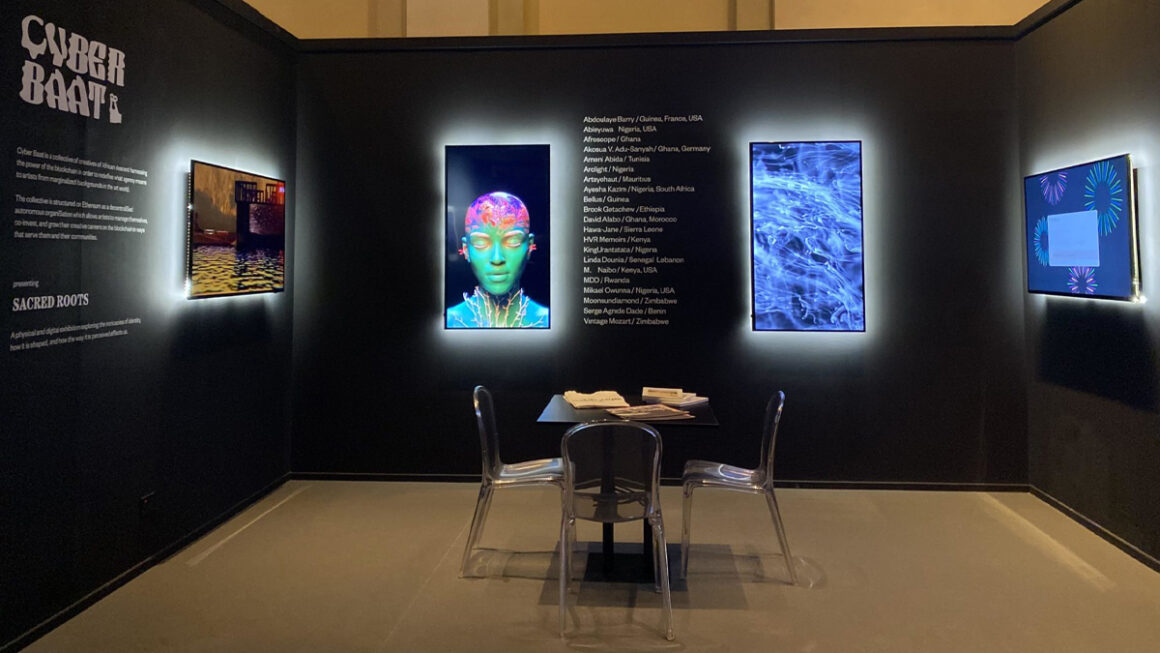Linda Dounia Rebeiz’s next web show, IN/Visible, starts Monday on Feral File and explores this weighty topic.
Ten black artists include Dounia. Jah, Serwah Attafuah, Adaeze Okaro, Minne Atairu, Linda Dounia, Zoe Osborne, Arclight, AFROSCOPE, Nygilia, and Rayan Elnayal perform.
These artists want to show AI’s bias against people of color. “The biases of AI, the biases of the internet, and the biases inherent in Western art history compound to create an environment where people of color, including black people, feel either absent or misrepresented by AI,” Dounia said.
Multidisciplinary artist Dounia made her first NFTs in 2021. Her painting is inspired by her childhood in Senegal, where environmental change and globalization caused huge changes.
Dounia uses Generative Adversarial Networks (GANs) to educate AI using data from her surroundings and artistic practice.
“When you input a search term like ‘human’ into AI platforms like Dall-E or Midjourney, the results are skewed,” she said. “You are more likely to find images of white men. However, when you search for ‘black person,’ the AI-generated results are often distorted, either in the facial features or body proportions.”
Dounia explained how AI uses stereotypes. She said the data showed that AI didn’t understand black people’s origins or conditions.
The exhibition’s pieces highlight these issues. Arclight uses distortions to create fuzzy, low-detail photographs, unlike Dounia, who blurs the full face to reject AI’s output.
Minne Atairu and Serwah Attafuah create visually pleasing artworks with clearly defined features and lighting, however, their hair depictions are variable.
Zoe Osborne uses filters to hide disparities in her images and give them an ancient look to express her views on AI representational integrity. Jah embraces AI’s weaknesses to create bizarre forms inspired by African masks and ancient Egyptian clothing.
Linda Dounia advocates for raising these problems. “AI is not created in an apolitical vacuum,” said Dounia. People create algorithms, interfaces, data, and algorithm training. Without awareness, we cannot eliminate bias.
An NFT display that addresses such topics can also reach the Web3 community, which is often mischaracterized as apolitical. “I was a little apprehensive about the reactions when I started curating, but so far, it has been well-received,” said Dounia.
The artist also promotes black artists, who are crucial to tackling this issue. “If more black artists begin utilizing the tool to provide contextual references, they are actively contributing data to rectify the flaws,” she said.
After the exhibition opens on June 12 at 14:00 UTC, collectors can acquire sets of the 10 works of art for 0.55 ETH apiece for 24 hours.
Buyers can purchase specific artwork variants for 0.055 ETH beyond this brief time.
Content Source: decrypt.co
The post Linda Dounia’s IN/Visible NFT exhibition shows AI, black artists appeared first on NFT News Pro.
